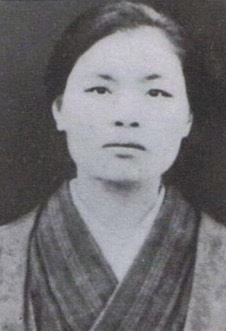
As many of you know, I have been working on a book about the history of film theory in Japan for quite some time. The larger project has already produced a number of articles (you can see some here, here, and here), journal reprints, lectures, and even a film theory anthology, but the book is progressing slowly. I already have a good number of sections written for the pre-war volume (it looks like it might end up being a two-volume work), but I am still working on how best to shape this for a more general audience. My former student, Naoki Yamamoto, has reworked his dissertation into a wonderful book, Dialectics without Synthesis: Japanese Film Theory and Realism in a Global Frame, but my book will not be a directed at an audience of specialists.
That’s why I was thrilled when the folks at Light Industry, the venue for film and electronic art in Brooklyn, NY, asked me to give a talk about my research. This was an opportunity to speak to a more general, but still highly interested audience. Given the pandemic, we opted for a podcast-like oral talk, and after some discussion, we opted for my discussion of Osaki Midori’s writings on film. As Tom Lamarre and Livia Monnet have already shown, Osaki’s approach to cinema is unique and fascinating, but I wanted to explore it in light of the context of film theory at the time. Since I am not an Osaki specialist, this is more a discussion of my encounter with Osaki. I preface the talk with an introduction to the problem of studying Japanese film theory, primarily because I contend Osaki, if not recognizing such problems herself, can be fruitfully understood in that context.
Here is the abstract:
Osaki Midori and the Theory Complex in Japan
Film theory is fundamental to understanding cinema: it attempts to answer questions about the what, how, and why of cinema. The history of such questions is long and global, yet the canonical histories of film theory have centered on Europe and America, tacitly assuming that those regions can speak for all of film theory. Japan has a rich history of film theory that matches its superlative cinema, but is largely unknown. Perhaps under the influence of the Eurocentrism of theory, that history is also largely ignored in Japan. This practice of pursuing theory but refusing to call it theory is an element of what I call the “theory complex.” There are many things to learn from reading film theory from Japan, but I contend one is a tendency that, likely because of theory’s perceived “Westerness,” critically questions theory as a discipline. As a fascinating example of that, I would like to introduce the writings on film of woman novelist Osaki Midori (1896–1977). Through her concept and practice of “eiga mansō” (映画漫想)—wandering thoughts and jottings on cinema—Osaki enacts a different relation between film and spectator, one that is simultaneously intimately sensual and detached, corporeal and ghostly. Often analyzed in terms of her lesbian sexuality, Osaki’s eiga mansō could be called a queering not only of cinema, but also, I would argue, of theory as well.
You can hear the recording of my talk here. I am someone who does not like to watch himself on video, and I now realize I don’t quite like to hear myself either. But Osaki is fascinating, so please give it a listen.
I prepared a page of names and titles that is available on the Light Industry, but forgot to link to this wonderful resource:
- Osaki Midori. Wanderings in the Realm of the Seventh Sense. Translated by Kyoko Selden and Alisa Freedman. The Asia-Pacific Journal: Japan Focus 14.6 (2016):

